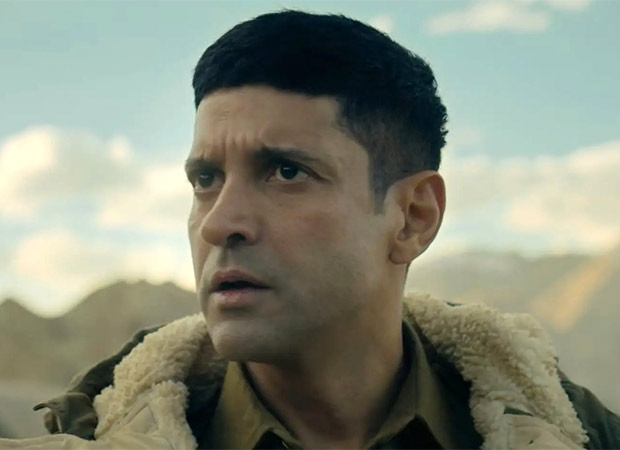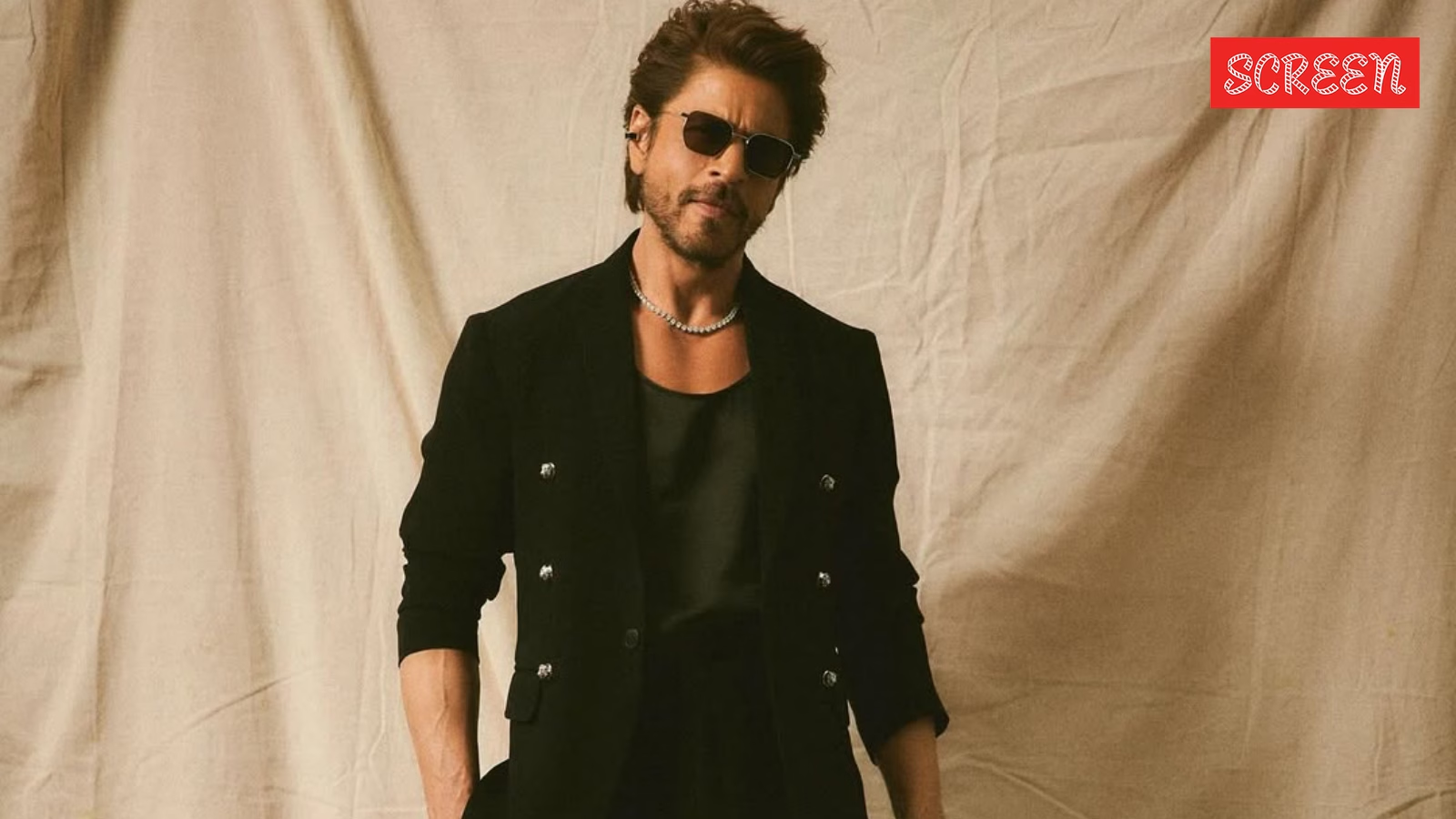Farhan Akhtar is receiving a lot of accolades for his performance in the recently-released war drama 120 Bahadur. The film is based on a chapter from the 1962 Indo-China war. Farhan, who plays the Param Vir Chakra awardee Shaitaan Singh Bhati, got talking about the film and more in an interview with us.

Farhan, lovely to see you in a film which is celebrating a real hero and not a gangster
Thank you, thank you very much. I appreciate that.
What brought your attention to this Param Vir Chakra winner Shaitaan Singh?
The director Razneesh Ghai is an army kid. His father has served in the army. His brother is currently serving in the army. That’s why his nickname is Razzy. He grew up with this story, hearing it from his father first and from his brother. Because this Battle of Rezang La, it’s something that’s taught in the army. I had heard the name Shaitaan Singh, but that was really about it. I didn’t know anything. I mean, like, it’s just an incredibly powerful, heroic man. I’m genuinely surprised that his story has not been filmed earlier.
Chetan Anand’s Haqeeqat, I think, was a film that touched upon the same battle. It was the larger war and the India-China aspect was played up a lot more. But in this, it was very focused on this battle and on this Charlie Company and on Shaitaan Singh Bhati. And I like the fact that Razzy was telling the story the way it was telling the story here. I also like the way Rajeev Menon, who’s written the screenplay, he’d like kind of structured it with this, the narrator, the radio operator. So, it’s following that same kind of structure in the film, which works really nicely. And it stayed, for me, the writing of the film stayed in a very real place.
How long ago did you become familiar with this?
So, now the entire process, I think, has been maybe close to two years. The one thing that Lakshya did prepare me for was understanding army culture and understanding, you know, like that. And the second thing, it also prepared me for what the long haul in Ladakh feels like. So, those two things I was kind of prepared for. And you actually filmed it in Ladakh.
You went through the experience, some of it at least?
It’s completely shot on location, which was absolutely the right thing to do. I mean, that all happened to every single person. But yeah, when you get through that, the more time you spend there, it becomes easier. But I mean, doing action, that is always a challenge. Marek Svitek, who’s the action director on the film, he’s the guy who did All Quiet On The Western Front.
How closely were you involved with the making of the film?
With the making, I mean, honestly, as much as a producer is. You know, the director shares his casting options with you and you go through all of that stuff together. And I mean, again, just whenever Razneesh needed me. He was very, very, very focused. He made a film called Dhaakad earlier.
What is your hope and aspiration for this important film?
My hope for this film is the absolute joy of discovery that I had learning the story or hearing the story. And the emotion that accompanied it. I mean, in some kind of way, almost the sorrow of not having known of an important, regret of not having known. I really do hope that that’s what I want people to feel. I want them to go and see the film and learn about this incident, learn about these people and understand that, I mean, you know, things that we take for granted, be it our freedom, be it our map, our borders, our culture.
Because I mean, when land is taken, cultures change. You know, so just the things that we take for granted as Indian, they’ve come at such a heavy price. And those who safeguard our sovereignty are really incredibly brave, incredibly courageous and selfless. And they need to be remembered. They have to be remembered. I just feel glad that I could be a conduit to bring the story to people. And I hope they go and see it, so that they can learn about Shaitaan Singh. They can learn about these 120 brave Ahir soldiers.
It should get a tax exemption in as many states as possible
Yeah, that’s not for me to decide. I would hope that it happens because it really is a film that every Indian should watch. And obviously making it exempt of tax in states makes it more accessible to people. So, I do hope that that happens.
Why is the Param Vir Chakra winner named Shaitaan?
There is an explanation for it. But you know, why he was named that you can find out on Google. But let me tell you something as an aside. Which is that Shaitaan ji, in the course of his life, two or three times, he actually tried to legally change his name.
Oh, really?
Yeah, he legally wanted to change his name because his name was something else. He was something else before his parents changed it to Shaitaan. So, he wanted to go back to his original name. But he wanted to change it. And when the third time he was unsuccessful in legally changing his name, his senior officer told him, please don’t change it. Because you are an officer. You are a soldier of this country. And tomorrow, if you go into battle, and if you fight a war, this name that you have is such a unique name that will always be remembered.
What is your takeaway from this experience?
My learning from it is love for country, love for the person you’re standing beside in the army. You know, respect, honour, those are important things. Those are the things that keep these people going. But I mean, more so than that, you know, and this is something that over time I’ve felt more and more, is like the amount of respect that we rightfully have for people who guard our borders and put country first. Yeah, I mean, why do they do this? You know, the chances of you not coming back is so high. And they still take that risk. Yeah, but I don’t know… For the love of the country. I don’t know if it’s seen as a risk. That’s what’s amazing about it.
It is seen as an opportunity to do something or be part of something that is larger than you. Than yourself. It’s an amazing emotion to carry around in your heart. So my take away from that it’s the selflessness. And when you’re wearing a uniform, there is a certain different level of selflessness that is asked of you. But the selflessness is something that I think is a great thing to think of for everything in India, no matter what you’re doing. That’s what I think is amazing.
If only those who go and see the film, if they get inspired to join the army, I mean, you would have done something that cinema hardly does these days
I don’t know how much of that will happen. But it definitely makes you think about why and how people put the country before themselves. I mean, that happened with Lakshya. I witnessed that first hand. But I’m talking about people who are not going to join the army. Or I’m talking about people who have already got jobs and are not in the army. You know, the thing is that what is our responsibility? Our responsibility can’t just be that, okay, let’s just depend on these chaps and we don’t do anything that is selfless in our own way and in our own sphere of work. I mean, if someone has this incredible kind of passion and commitment and discipline, I mean, discipline is equally as important. That’s what makes your mind as hard as steel, yeah? And your will as hard as steel. You know, so it just hats off to all of them.
Absolutely hats off. One question that nagged me at the end, which probably wouldn’t bother you at all is, why not Lataji’s ‘Ae Mere Watan Ke Logon’? She sang it especially for this Indo-China war in 1962?
Yeah, she did. She did sing it for that. But I also did feel, I mean, like we did feel that there was an opportunity to do something. To create something new. I felt that, you know, it would be nice to also have a new song that can join that universe of songs. I mean, it’s just to be a part of the same universe. It’s a really beautiful song. And I mean, you may not agree, but I think Shreya Ghosal has done an incredible job.
You’re a songwriter. You have written songs also. You’re an actor. You’re a filmmaker. What exactly is your vocation?
I’m going to say this to you. And I’m not being over sentimental. But I really, really do hope that five years down the line, whether it’s a film that I’ve acted in, whether it’s a film that I’ve directed, whether it’s some, I don’t know, song that I’ve put out or whatever it may be. And I mean this from the bottom of my heart. You and I can still have a chat like this. In this kind of positive way. That’s what I hope for five years from now. About a piece of work that you like.
The post Farhan Akhtar on his triumphant journey in 120 Bahadur, “It definitely makes you think why and how people put the country before themselves” appeared first on Bollywood Hungama.



